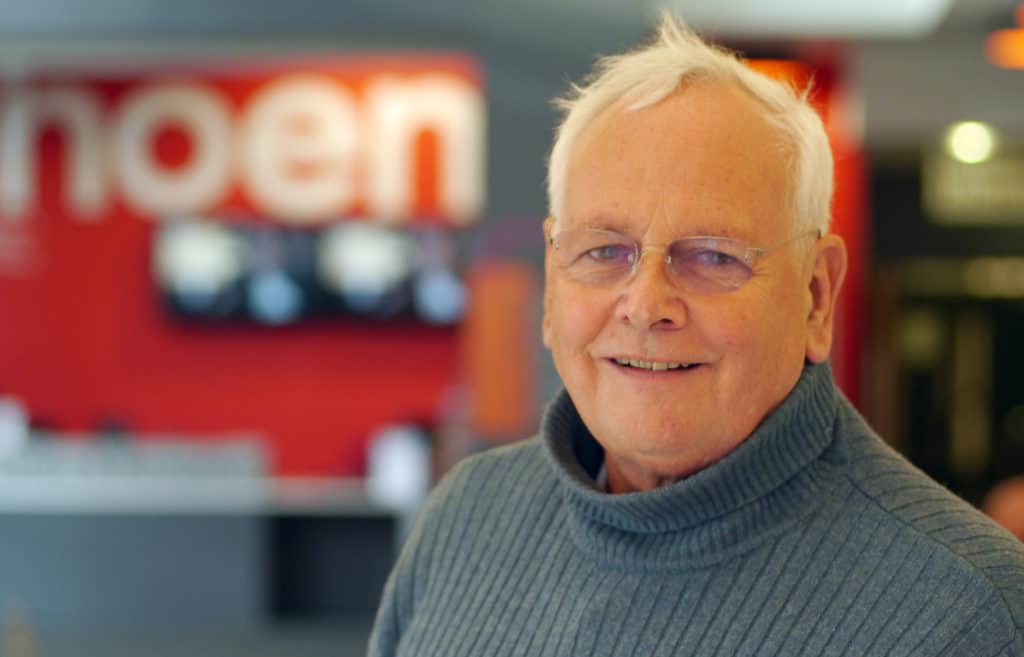Today’s guest blog is written by Sir Alan Tuckett OBE, Professor of Education at the University of Wolverhampton, Honorary Fellow of UNESCO’s Institute of Lifelong Learning, and Past President of the International Council of Adult Education. He was a trustee of the National Extension College in the 1990s.
Since 2011, the Open University has lost three in ten of its students, whilst in higher education in England overall there has been a drop of more than half of the part-time (overwhelmingly mature) students, following the government’s decision to transfer grants to student loans. The market, designed for full-time 18 year olds works (though anyone looking at £50,000 plus debt after a first degree may wonder what ‘works’ means). For adults it doesn’t. Meanwhile, in further education a million places in publicly funded adult education have disappeared, as part of the endless austerity measures government has introduced. This million is, by the way on top of another million lost between 2004 and 2011. Then there are employers. Every other European country, with the single exception of Portugal saw employers increasing investment in training for staff following the financial crash of 2007-9. By contrast employers in Britain have cut spending on training, and the money they do spend is concentrated on more senior staff. It is not only happening in the UK either. In the hope of getting better international league table results Saudi Arabia has abolished part-time and distance learning degrees. Education matters, it seems, but not for adults.
Taken together, there is a perfect storm affecting opportunities for adults to take up learning. Statistics can be dry, but every one of the places lost is an opportunity lost. There is powerful evidence – not least from the government’s own publications – that classes can make a difference for people recovering from mental health issues. But you can’t make use of them if they are not there. There is evidence, too, that keeping on learning helps secure independent, healthy adult lives. But the disappearance of classes for older people triggered the University of the Third Age movement to organise opportunities for themselves. The same motivation inspired Michael Young to set up the National Extension College more than fifty five years ago, to enable people who can’t get to classes offered at the same time each week to get a second chance education. That initiative was followed by the Open University, and between the two hundreds of thousands of people’s lives have been transformed.
One such story, that of Derek Fry, was celebrated in the Guardian earlier this year, through his friend’s obituary. Derek left school at fifteen and went to work as a laboratory assistant at Leeds Fireclay Company. He went to night school to do O and A levels, signed up for teacher training at 24 and was one of the very first of the Open university’s students following up a passion developed in early childhood for astronomy. As a result of Derek’s second chance in education he was able to pass on that passion during a fifty year teaching career. More than a dozen doctoral theses were dedicated to him, he was inducted as a member of the Institute of Physics in 1997, and everyone he taught felt inspired. His is a story that shows that learning leaks – what you learn in one place inspires others.
And the cuts outlined at the start of this piece represent millions of similar life stories stymied by short sighted cuts. This is all the more extraordinary given the expected impact of artificial intelligence and the fourth industrial revolution on working life in the years ahead. The case for investing in adult learning has never been stronger, as the House of Lords economic committee noted earlier this year. But I am not holding my breath on when words will be followed by actions. And that is why the example of Michael Young’s creativity in setting up the NEC, of Eric Midwinter and colleagues at U3A, or the imagination of the Australians who started the men’s sheds movement are so critical. We can’t afford to wait for the public decision makers. We have to follow their inspiration and invent and maintain new forms for adults to engage with learning. That will ensure that today’s Derek Fry gets his or her own second chances in the years ahead.
If you are feeling inspired by Sir Alan Tuckett work or Derek Fry’s passion for astronomy perhaps you would be interested in the launch of our new GCSE Astronomy course where you will explore the universe, make a planisphere, learn what a Copernicus crater is and so much more!


Add a new comment
Current comments: 0